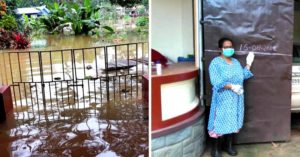168 Hours Without Power: 81-YO Kolkata Grandmom Shares Cyclone Amphan Ordeal
“A tree branch came out of nowhere and hit our main door, leaving a huge crack in the sturdy sagwan wood. It almost felt like there is no end to the night,” grandma recollects.

“I have lived through a lot, but never have I witnessed something of this magnitude,” whispers my 81-year-old grandmother as she narrates the fateful night when Cyclone Amphan struck.
“Doors rattled, the windows broke. It was pitch dark everywhere, (we) couldn’t even keep a candle alight. It felt as if the roof will give in any moment. All I could think of was my family’s safety. But all you could hear was the fierce howl of the wind,” she recalls.
Despite the gravity of the call, I was relieved to see my family members over a week after the catastrophic cyclone tore through West Bengal. 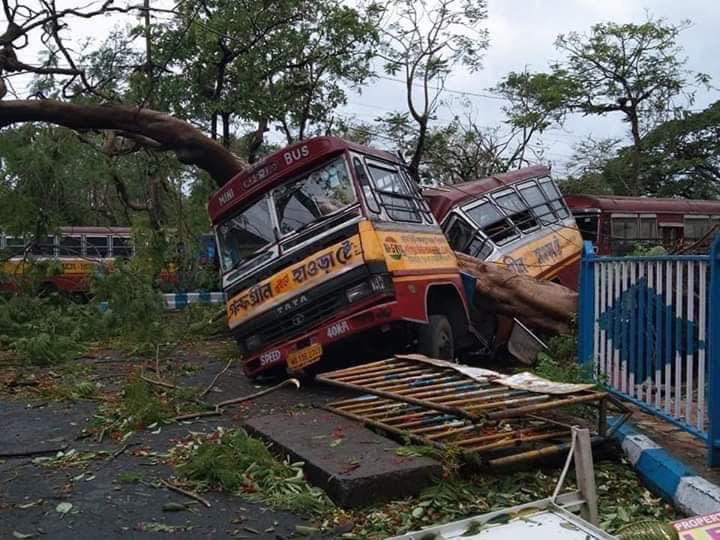
Even in a metropolis like Kolkata, power and network connectivity took more than 168 hours to be restored – such was the extent of the devastation. Over a phone call intercepted by crackling bouts of network failure, I heard the terrifying narrative of the cyclone from my family.
The Eerie Calm Before the Storm
“Ekhane power nei onekkhon. Jhor utheche baire. Ki je hobe jani na. (No power here since a while. There is an intense storm outside. We don’t know what will happen,” my mother had told me over a frantic phone call on 20 May.
Sitting hundreds of miles away in Bengaluru, her words left me in a fit of panic. I could already hear the thunder rumbling in the background before the call disconnected. News channels were continuously broadcasting videos of the Kolkata sky on that day, overcast with layers of grey, angry clouds.
For me, it was one anxious night – as I tried to stay up to every-minute updates of the cyclone. With each passing hour and occasional news of a shattered home or broken electric wirings, my fear and anxiety grew. 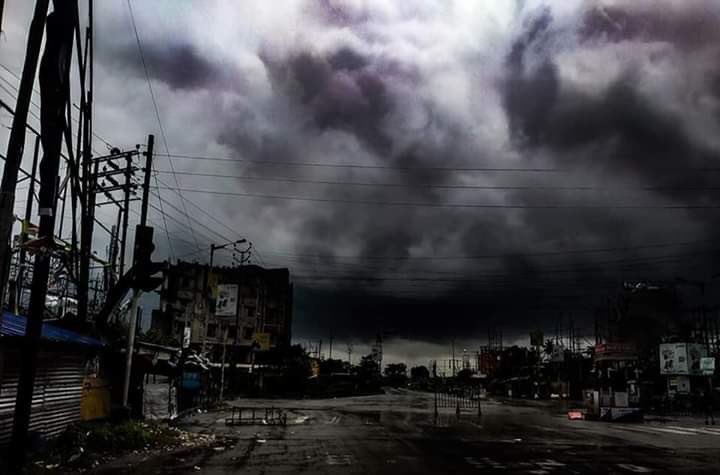
Broken Window Panes and Shattered Spirits
Back home, my city was being battered. And my family, friends, relatives and a million others were enduring the devastation amid an ongoing global pandemic.
Later, when I reconnected with my family after days of nail-biting silence, they informed me how they had gone nearly a week without any power or water supply.
My grandmother – Atashi Nath – is a partition survivor, had seen famines and epidemics, major wars and countless natural disasters – from yearly floods to earthquakes. She has sailed through every crisis in her life with an indomitable spirit.
But, I knew she had been shaken the night I called my family.
“I saw the tin sheds being blown away from our neighbour’s house. One tin shed had hit one of our windows directly, breaking it into a thousand pieces. We are fortunate enough to have a concrete roof above our heads,” my grandmother says, “Imagine the plight of those living in mud huts in villages or tents on the roadside.”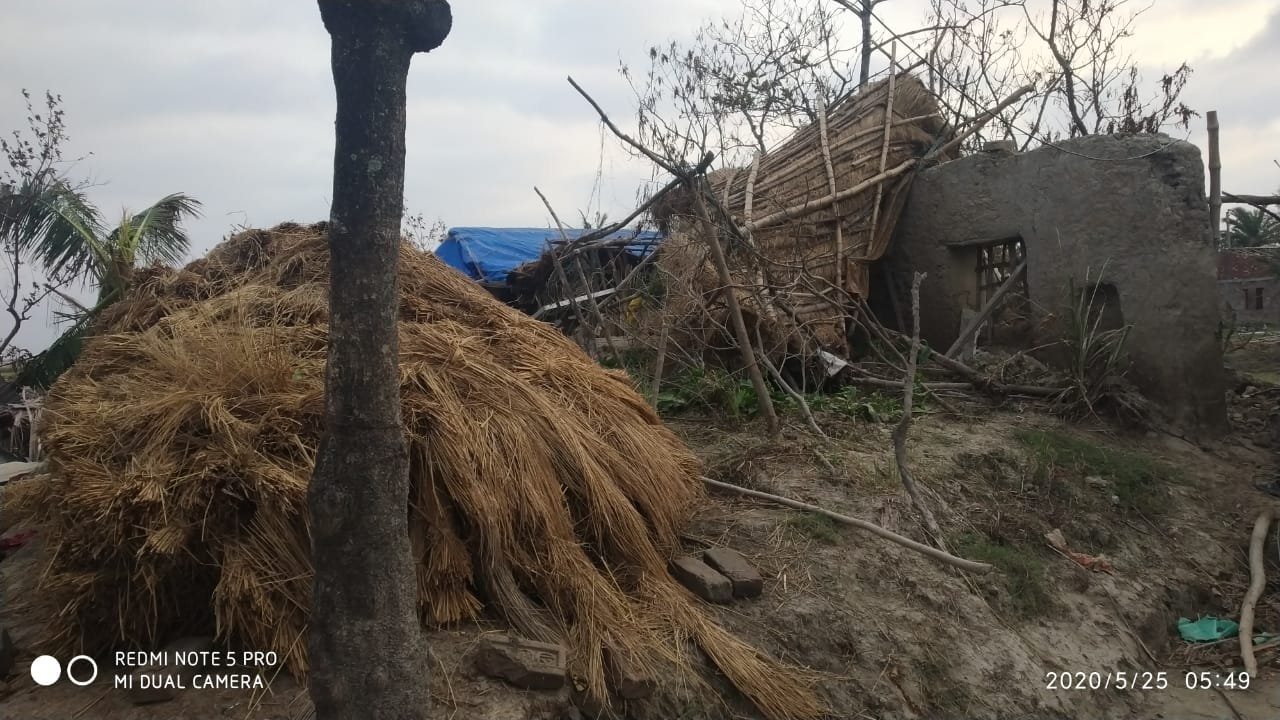
So many of such families live in my neighbourhood. With no roofs over their heads, I could almost imagine the poor and the needy clutching their families close and praying for the rampage to stop.
“Trees were Falling Down like Frail Plastic Toys”
“A tree branch came out of nowhere and hit our main door, leaving a huge crack in the sturdy sagwan wood. It almost felt like there is no end to the night,” grandma recollects.
My mother added that several century-old trees in our area had been uprooted within just a few minutes of the cyclone, before breaking to me that we have lost the tall betel nut, mango and papaya trees in our garden. My grandmother told me that many of them had been planted by my grandfather whom we lost a year ago.
The cyclone had lasted around six hours, tearing through the state in this short while. After a sleepless night, cooped up in the house praying for the storm to pass, my family stepped out to a scene of devastation.
The basement and front yard were submerged in water. Electric wires lay astray everywhere, often turning several zones into dangerous electrocution points. 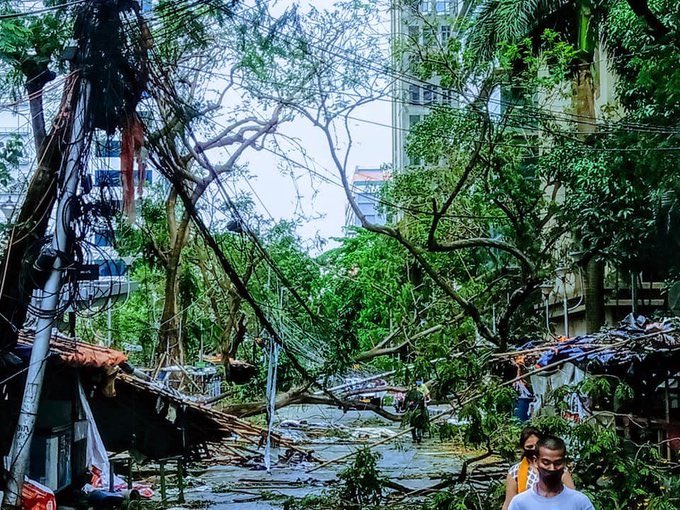
From 20 May to 26 May, there was no power or water supply in my neighbourhood.
Thankfully, our home had a 2000-litre water reservoir which served as the only source of water for over 50 families in the neighbourhood for a week. Most of the families survived on one-pot meals and dry food to ensure the minimal use of stored water and rations. Markets, local grocery shops and even supermarkets remain closed for days together as there was no easy way to regain normalcy immediately after the disaster.
“When the water in our reservoir ran out, we had to lift water from the old well in the backyard. We filtered that water and used it for household chores and bathing,” shares grandma.
Over 5000 trees had been uprooted across the city, leading to the massive destruction of electric supply wires and power transmission towers. The restoration efforts received a setback due to the inundation.
More mayhem was in store for the state as another Kalbaishakhi storm barged in on Wednesday, claiming many of the trees which were spared by Amphan. The lesser privileged families who had just started to rebuild their homes from scratch were forced back to square one again.
A few days into the disastrous aftermath without power, water and other essential supplies, people across Kolkata erupted in protests citing government negligence and delay in the restoration work. Later, the Kolkata Municipal Corporation & NDRF personnel worked to get the electricity and network supply restored. Though the city is limping back to normalcy, the scars of that night are indelible.
Support the Survivors
Like thousands, Cyclone Amphan has left my family traumatised. But they know how fortunate they are to have had a concrete home. Which is not the case for those whose lives the cyclone has ravaged.
Coupled with the aggravating COVID-19 situation, Bengal now has a huge challenge ahead.
Many organisations and individuals have volunteered to help save the cyclone survivors all across the state, including the remote interiors. Now you can also support their cause by a little contribution. Click here to donate.
(Edited by Saiqua Sultan)
Like this story? Or have something to share?
Write to us: [email protected]
Connect with us on Facebook and Twitter.
This story made me
- 97
- 121
- 89
- 167
Tell Us More
We bring stories straight from the heart of India, to inspire millions and create a wave of impact. Our positive movement is growing bigger everyday, and we would love for you to join it.
Please contribute whatever you can, every little penny helps our team in bringing you more stories that support dreams and spread hope.






